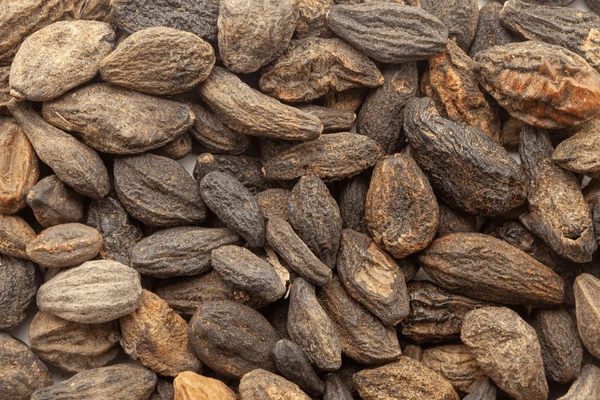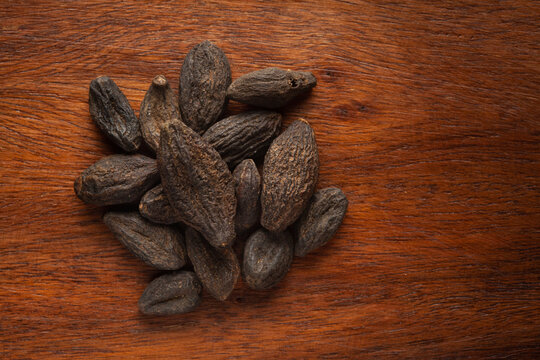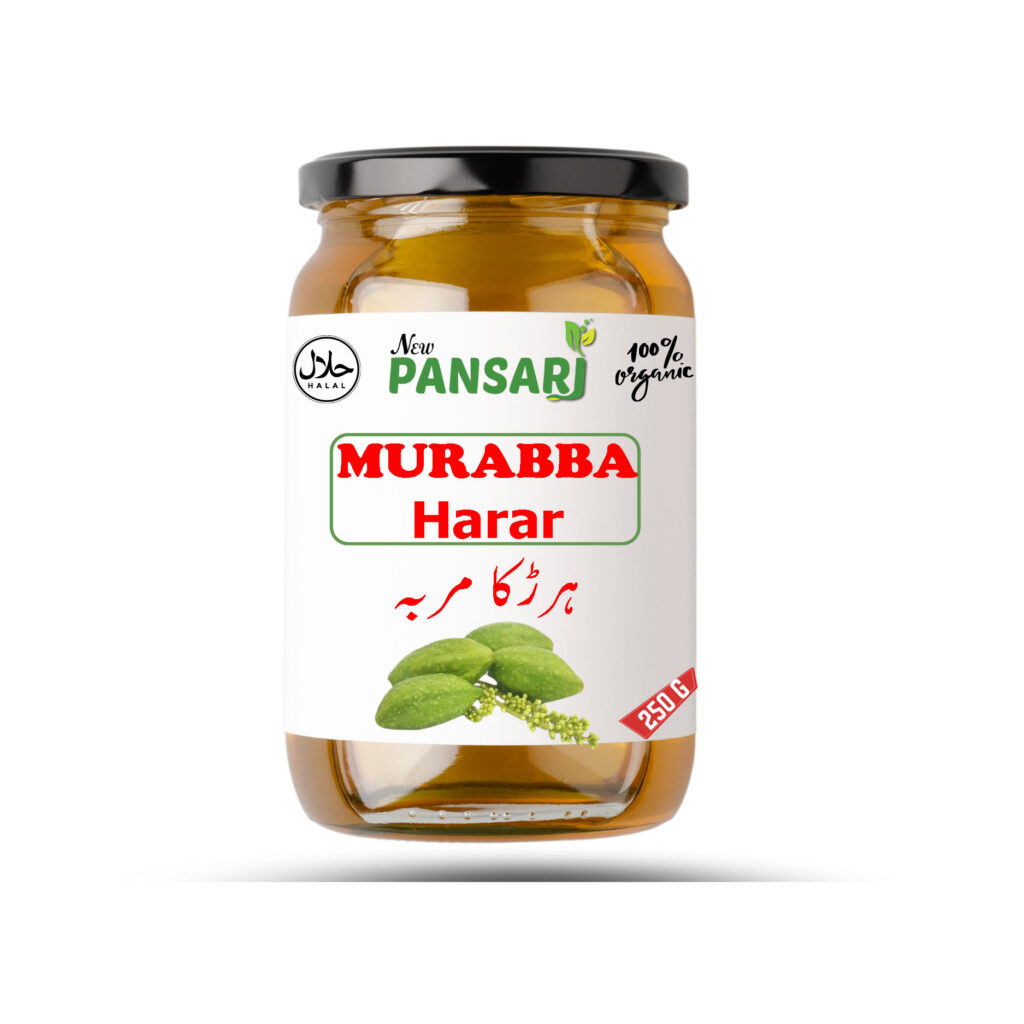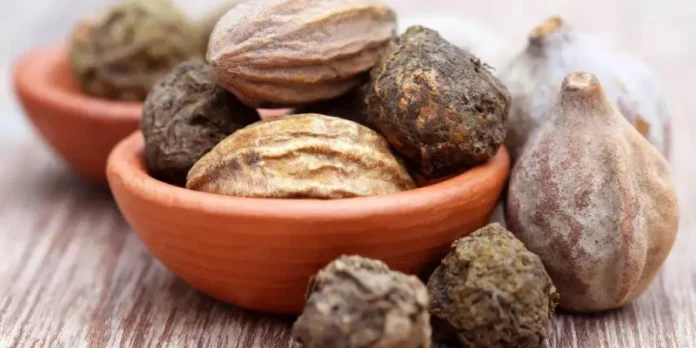INTRODUCTION:
JULABA herb, also known as Harad or Haritaki, is a natural medicinal fruit from the plant Terminalia chebula. It has been used for centuries in traditional medicine like Ayurveda and Unani. Harar is known for its many health benefits, especially for helping digestion, improving immunity, and cleansing the body. The dried fruit is usually taken as a powder, tea, or supplement.

English: Harar, Chebulic Myrobalan, Ink Nut
Sanskrit: Haritaki, Abhaya, Pathya
Hindi: Harad (हरड़), Haritaki
Urdu: Halela Zard (ہلیلہ زرد), Harar
Arabic: Halilaj (هليلج), Halelah
Persian: Halileh, Halelah
Punjabi: Harad (ਹੜੜ)
Gujarati: Harade (હરડે)
Marathi: Hirda (हिरडा)
HEALTH BENIFITS:

Moisturizing Effects
Harad can help in retaining the skin’s moisture, keeping it hydrated and preventing dryness. This is particularly beneficial for those with dry or flaky skin, as it helps maintain a soft and smooth texture.
Anti-Aging Benefits:
By may boosting collagen production and improving skin elasticity, Harad can help delay the signs of ageing. The antioxidants and vitamins present in Harad nourish the skin, reducing the appearance of wrinkles and keeping the skin firm and youthful.
Improves Digestion
Acts as a mild natural laxative
Helps relieve constipation, bloating, and gas
Supports better nutrient absorption
Boosts Immunity
Rich in antioxidants like Vitamin C
Strengthens the body’s defense against infections
Detoxifies the Body
Supports liver function and helps flush out toxins
Cleanses the digestive tract and blood
Supports Weight Loss
Boosts metabolism
Reduces cravings and helps manage fat levels
Regulates Blood Sugar
Helps lower blood glucose levels naturally
Useful in managing early-stage diabetes (under medical supervision)
Promotes Skin Health
Helps treat acne, eczema, and skin inflammation
Improves skin glow when taken regularly
Improves Brain Function
Enhances memory, focus, and mental clarity
Considered a rejuvenating herb (Rasayana) in Ayurveda
SIDE EFFECTS:

Stomach Upset
- Taking too much may cause diarrhea, cramps, or nausea due to its laxative effect.
Dehydration
- Frequent use can lead to fluid loss and dehydration if not balanced with water intake.
Lowered Blood Sugar
- Harar may reduce blood sugar levels. This could be risky for people already taking diabetes medication, leading to hypoglycemia.
Pregnancy & Breastfeeding Risks
- Not recommended during pregnancy or breastfeeding unless advised by a healthcare provider.
HOW TO USE:

As Powder (Most Popular Form)
- Dose: 1–3 grams (about ½ teaspoon), once or twice daily
- How: Mix with warm water, honey, or ghee
- Best time: Before bedtime or early morning on an empty stomach
- Benefits: Good for digestion, detox, skin, immunity
As Tea or Decoction (Kadha)
- How:
- Boil 1 teaspoon of Harar powder or crushed dried fruit in 1 cup of water
- Simmer for 5–10 minutes, strain and drink warm
- Optional: Add honey or ginger for taste
- Uses: Helps with cough, sore throat, constipation
As Capsules or Tablets
- Dose: Follow the product instructions (typically 1–2 capsules per day)
- When: With warm water, preferably before bed
- Good for: Easy and travel-friendly option
Topically (For Skin or Oral Use)
- Skin: Make a paste with Harar powder + water/turmeric and apply on acne or wounds
- Mouth ulcers: Use the decoction as a gargle
- Gums: Mix Harar powder with a pinch of salt and massage gently

- Daily Dose:
1 piece of Murabba Harar (medium-sized), once or twice daily - Best Time to Take:
- Morning: On an empty stomach with warm water for digestion
- Night: Before bed for constipation or acidity relief
- Optional Add-ons:
- With warm milk – for memory and vitality
- With fennel seeds – to reduce bloating and gas
- With black salt – for better digestion
Precautions
- Don’t overeat; stick to 1–2 pieces a day
- Diabetics should avoid or use sugar-free versions
- Avoid during active diarrhea




